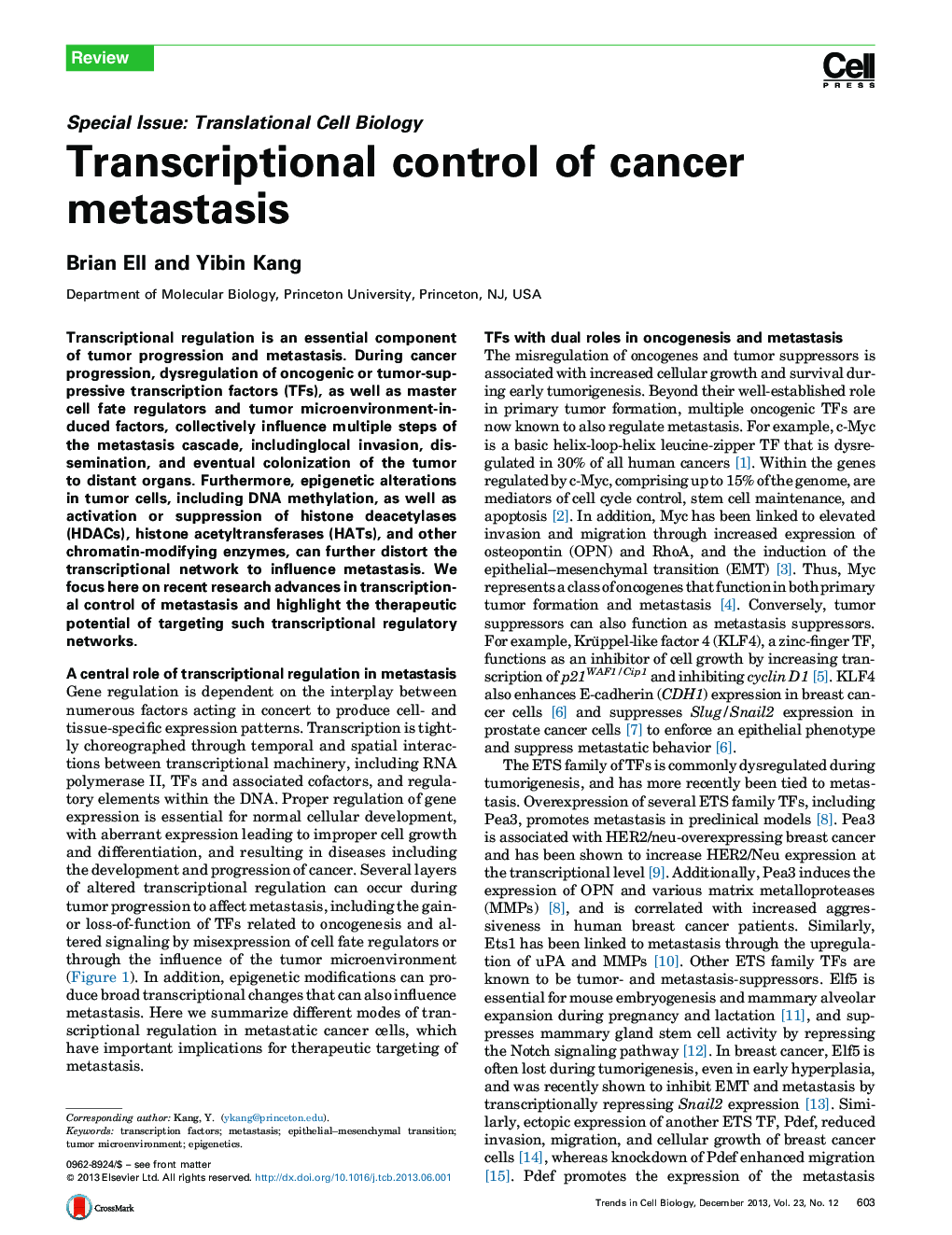| Article ID | Journal | Published Year | Pages | File Type |
|---|---|---|---|---|
| 2204475 | Trends in Cell Biology | 2013 | 9 Pages |
•Transcription factors (TFs) are key players and therapeutic targets in metastasis.•Oncogenic and tumor-suppressive TFs can also affect metastasis.•Cell fate-regulating TFs have significant influence on invasion and metastasis.•Metastasis-promoting TFs are often induced by signals from the tumor microenvironment.•Epigenetic alterations change the transcriptional landscape to regulate metastasis.
Transcriptional regulation is an essential component of tumor progression and metastasis. During cancer progression, dysregulation of oncogenic or tumor-suppressive transcription factors (TFs), as well as master cell fate regulators and tumor microenvironment-induced factors, collectively influence multiple steps of the metastasis cascade, including local invasion, dissemination, and eventual colonization of the tumor to distant organs. Furthermore, epigenetic alterations in tumor cells, including DNA methylation, as well as activation or suppression of histone deacetylases (HDACs), histone acetyltransferases (HATs), and other chromatin-modifying enzymes, can further distort the transcriptional network to influence metastasis. We focus here on recent research advances in transcriptional control of metastasis and highlight the therapeutic potential of targeting such transcriptional regulatory networks.
